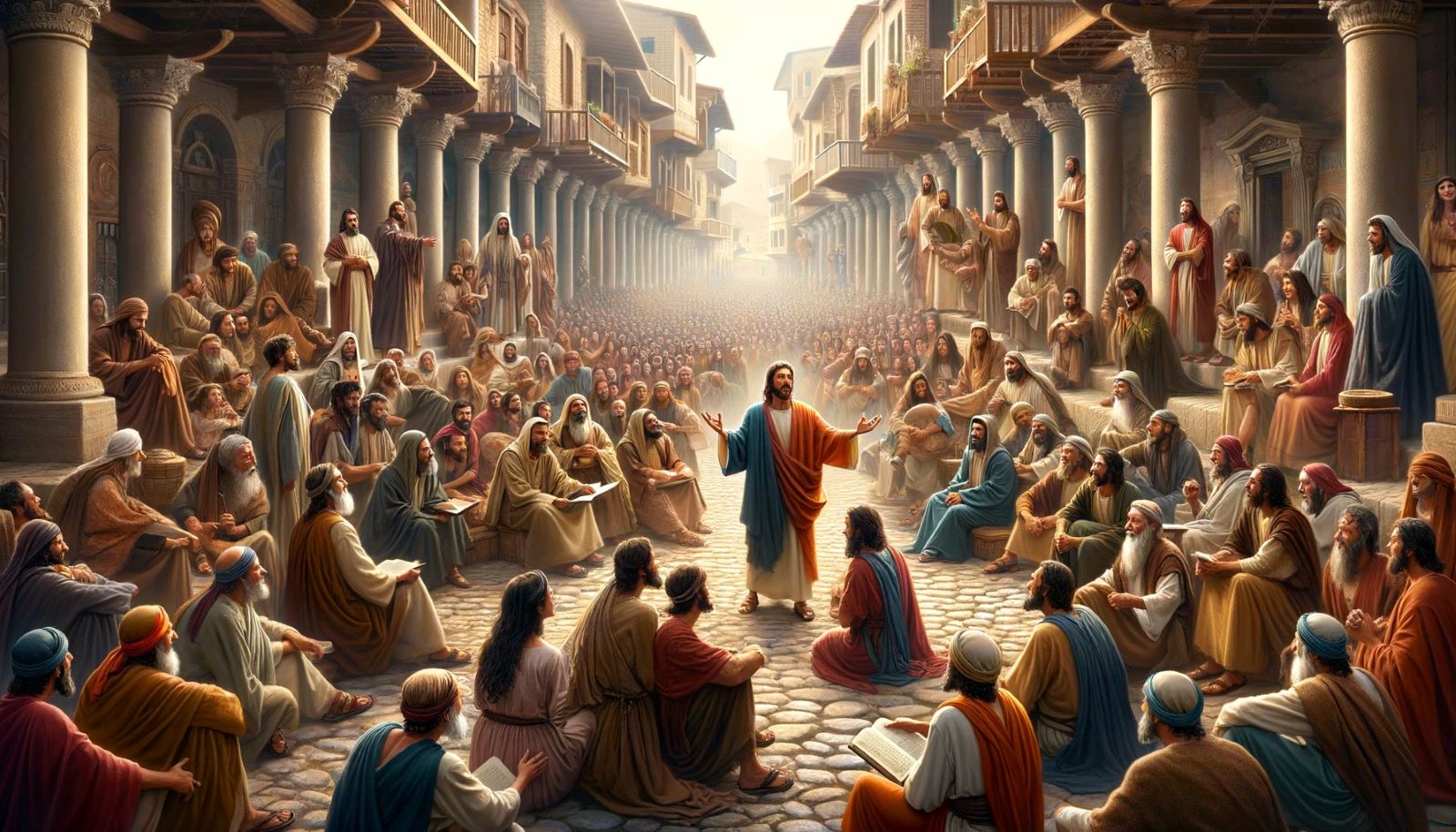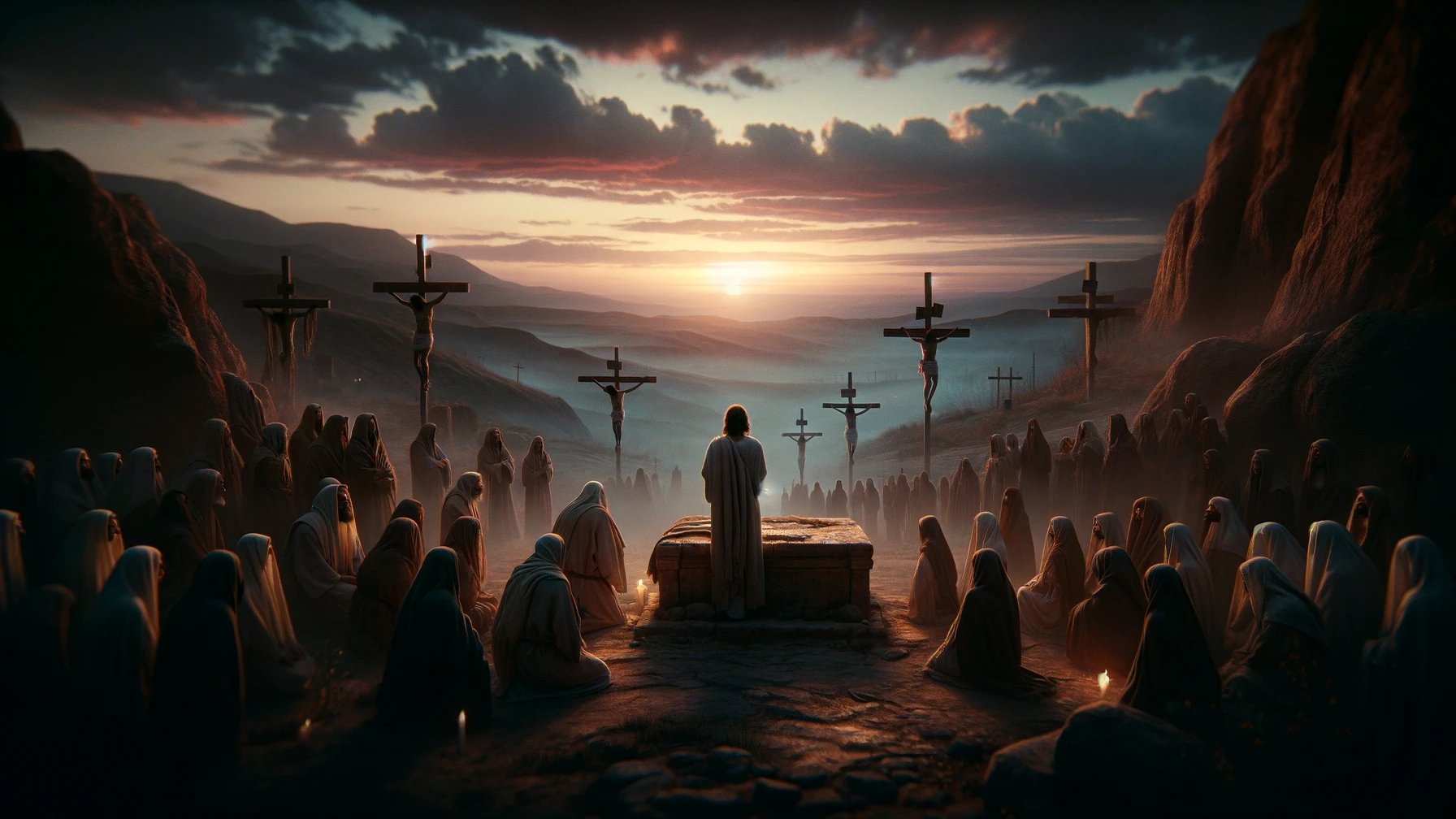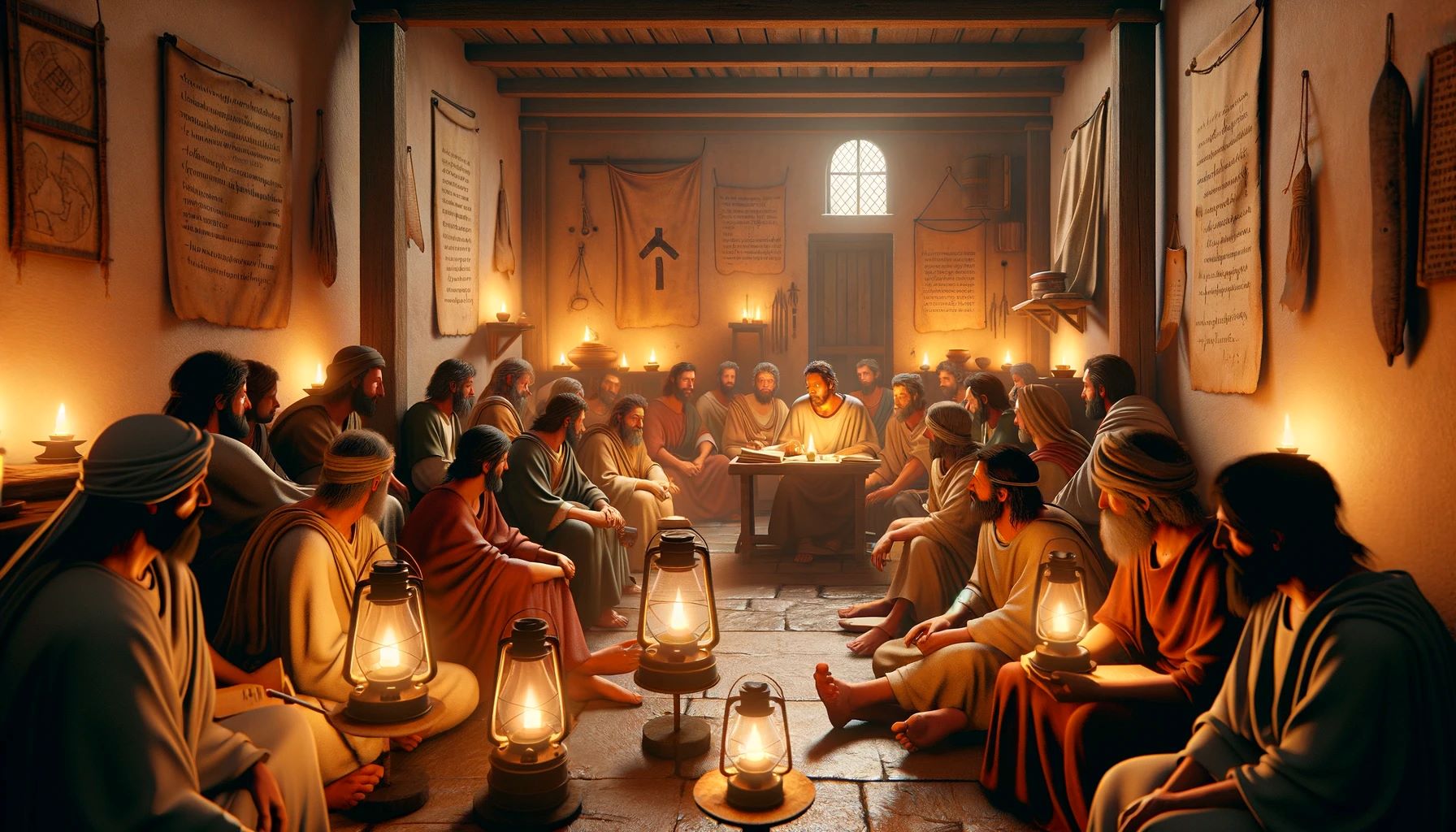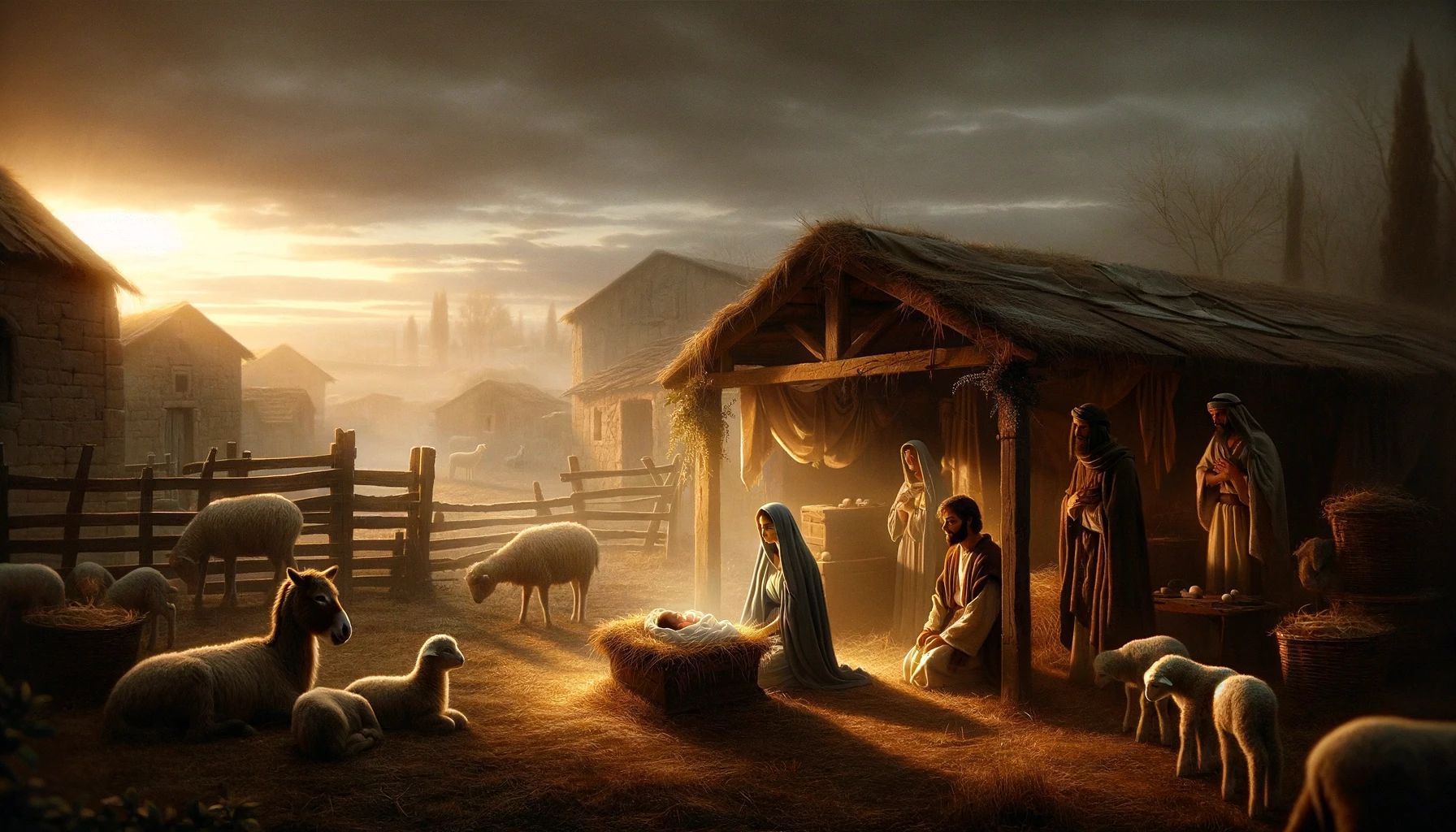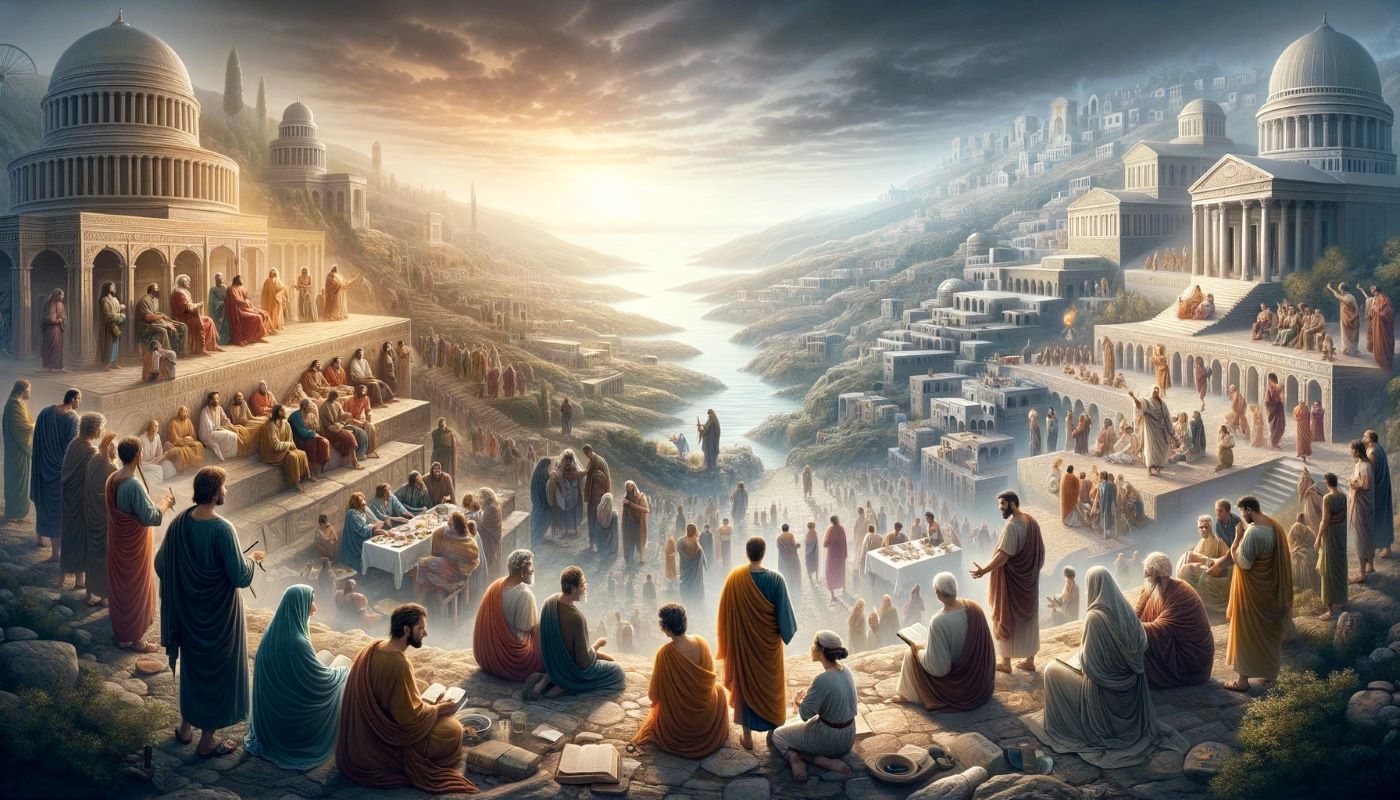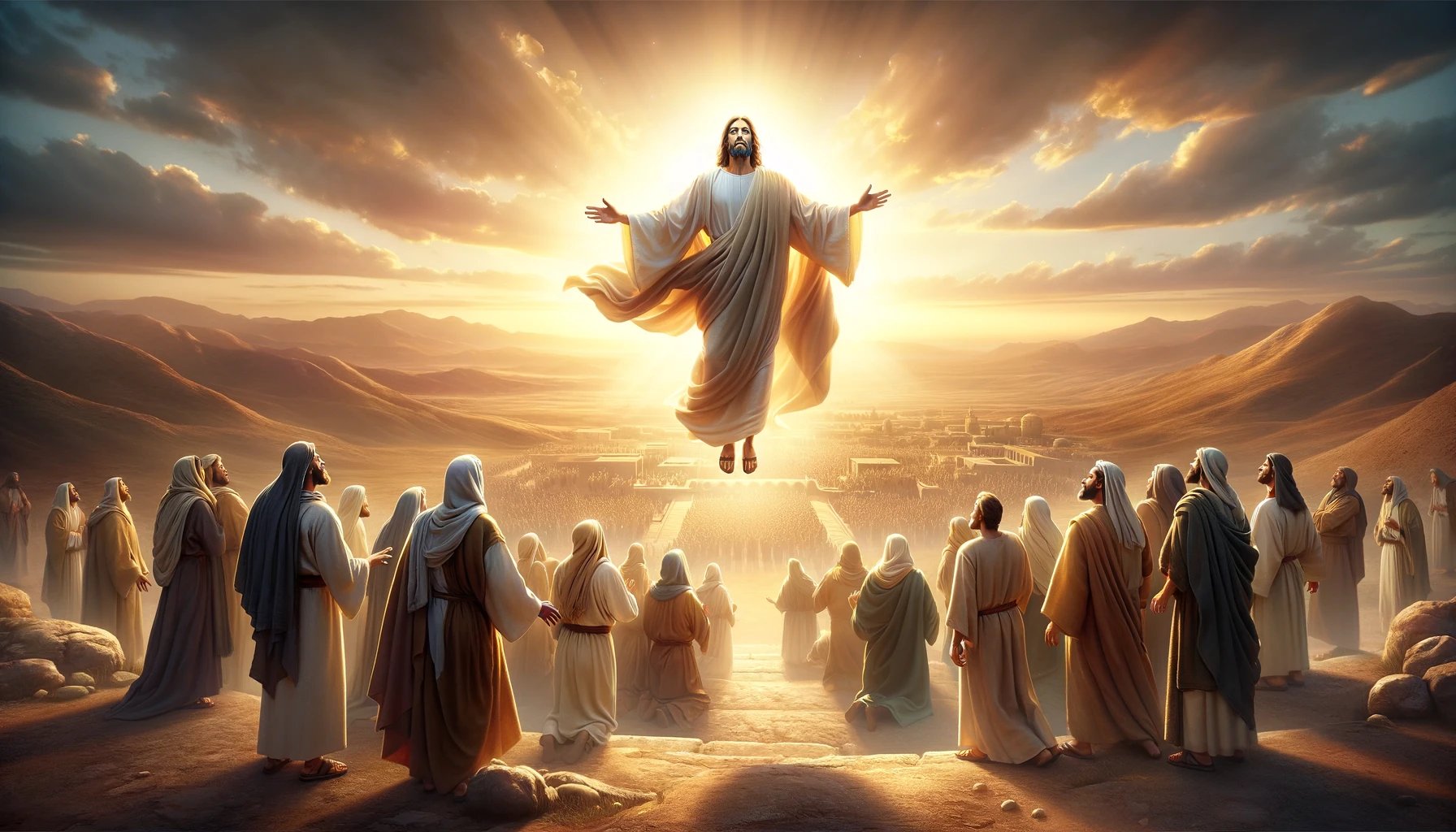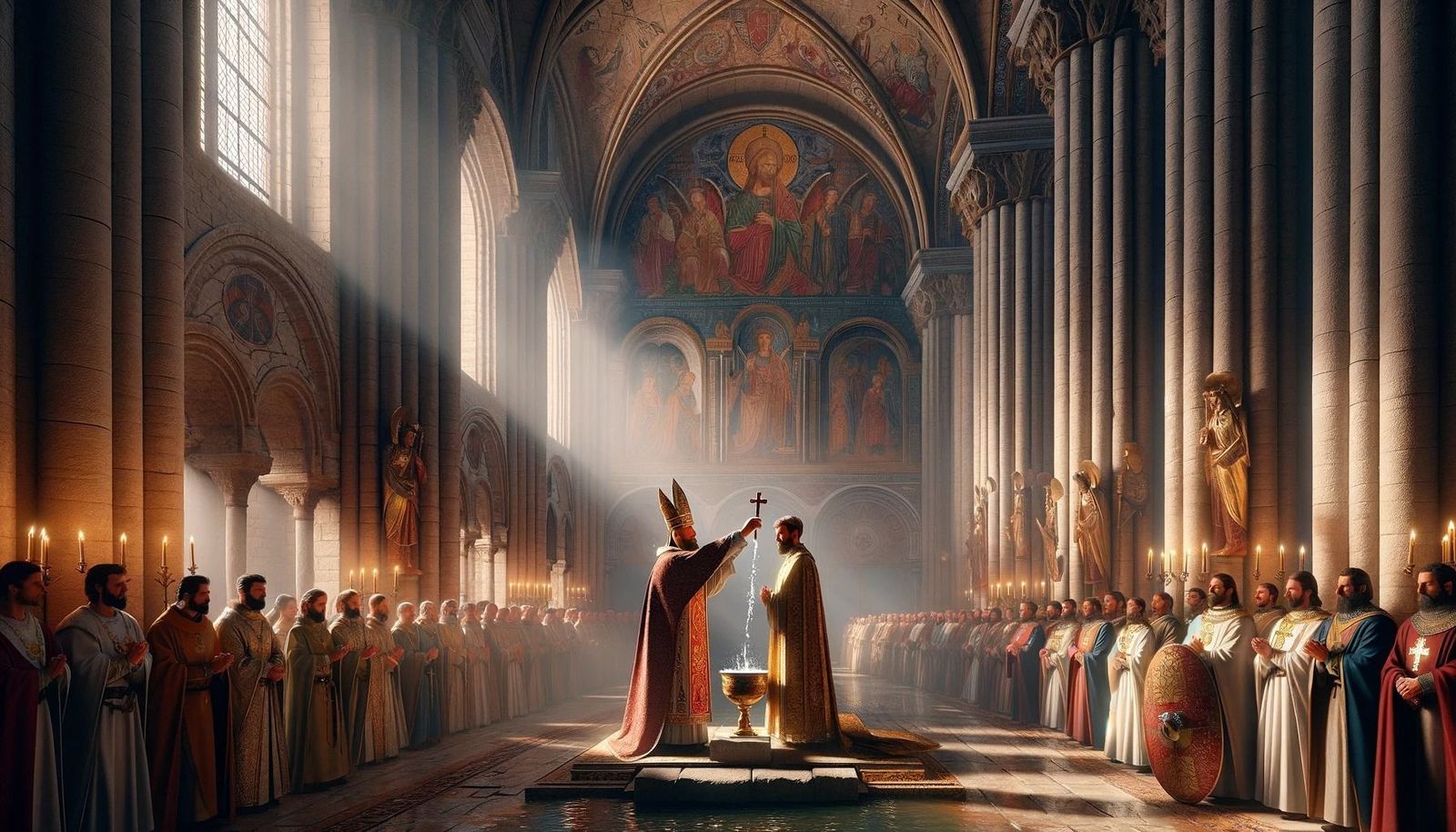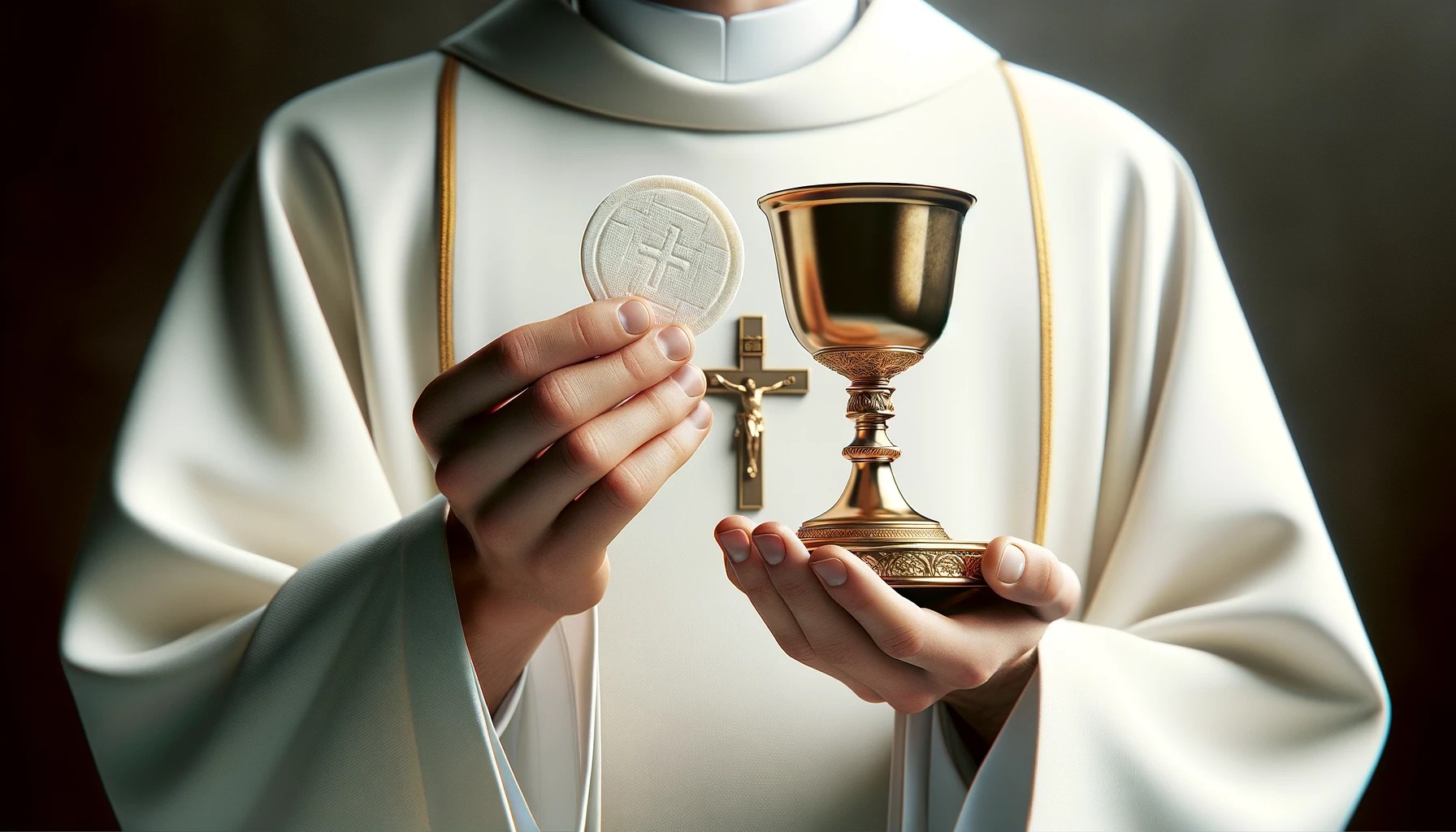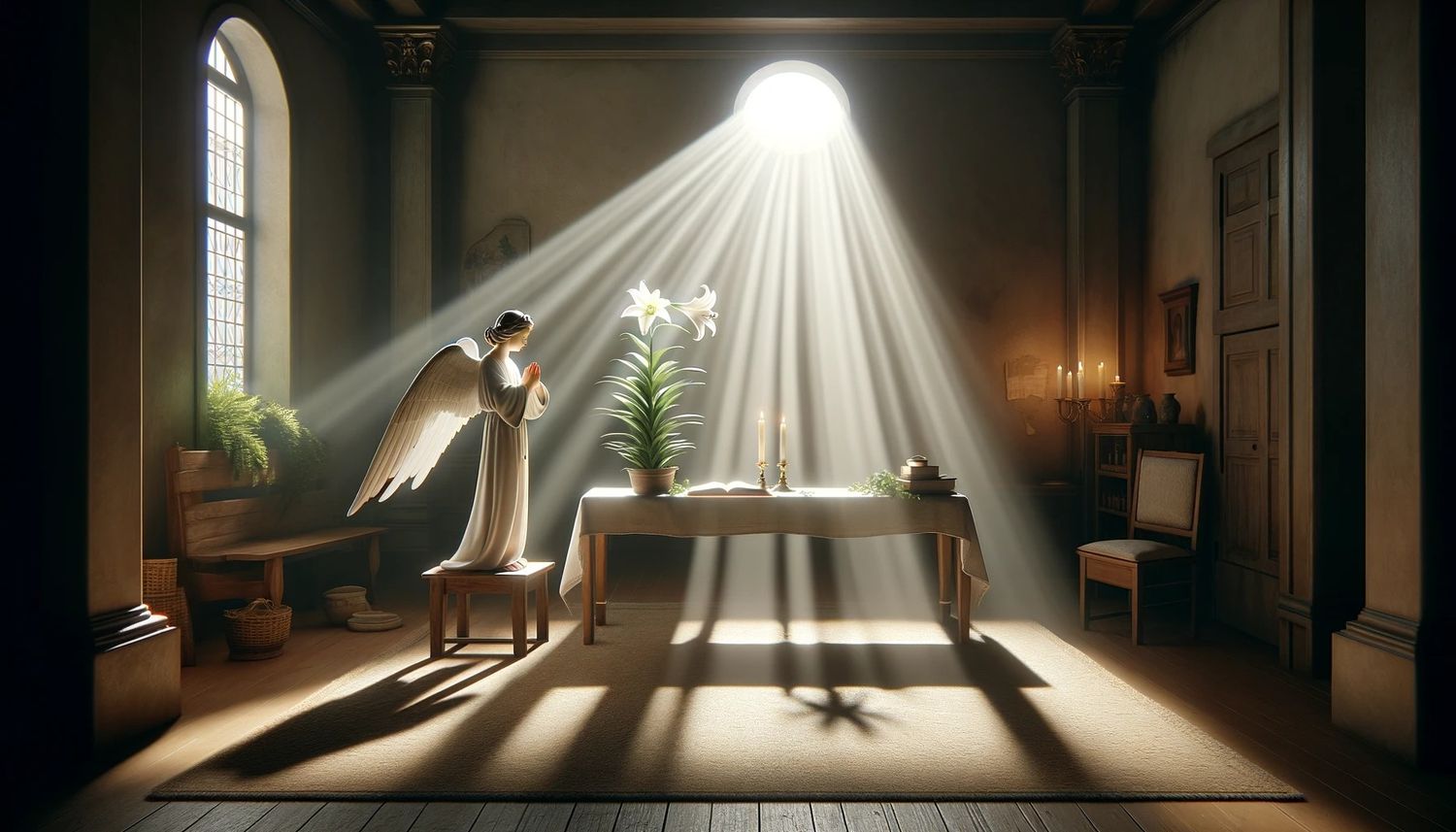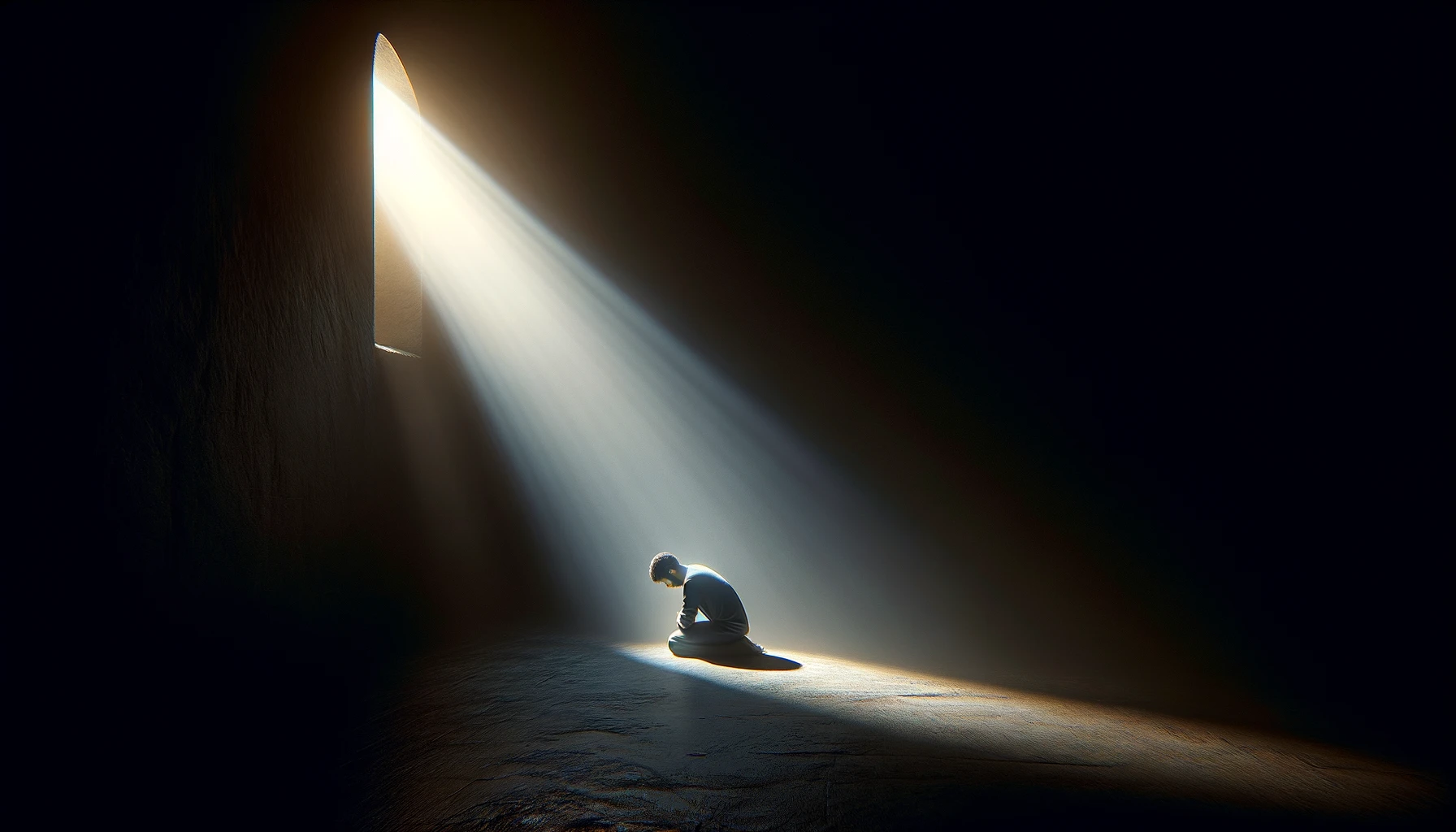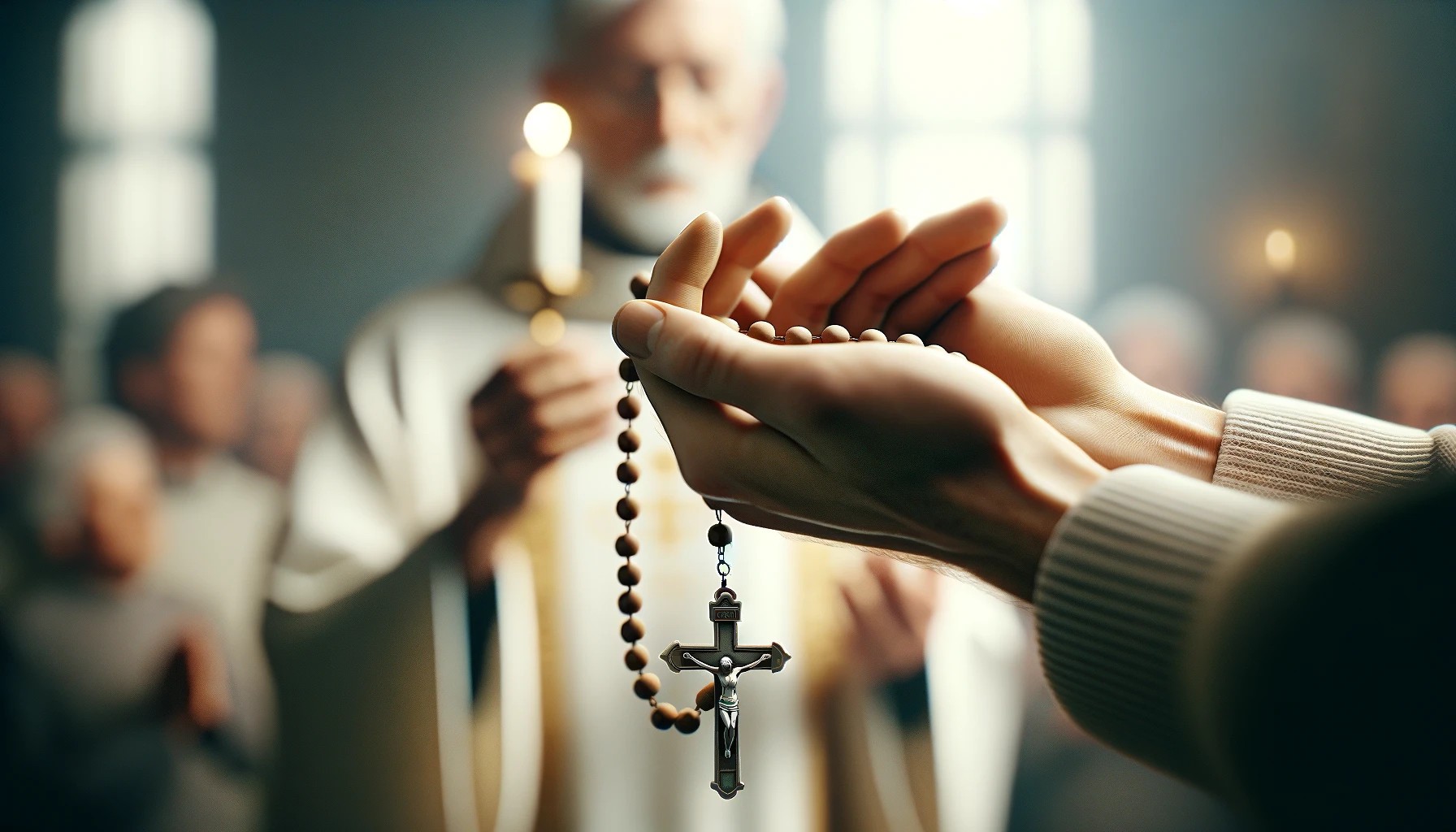Home>Theology and Spirituality>What Happens After Death In Catholicism
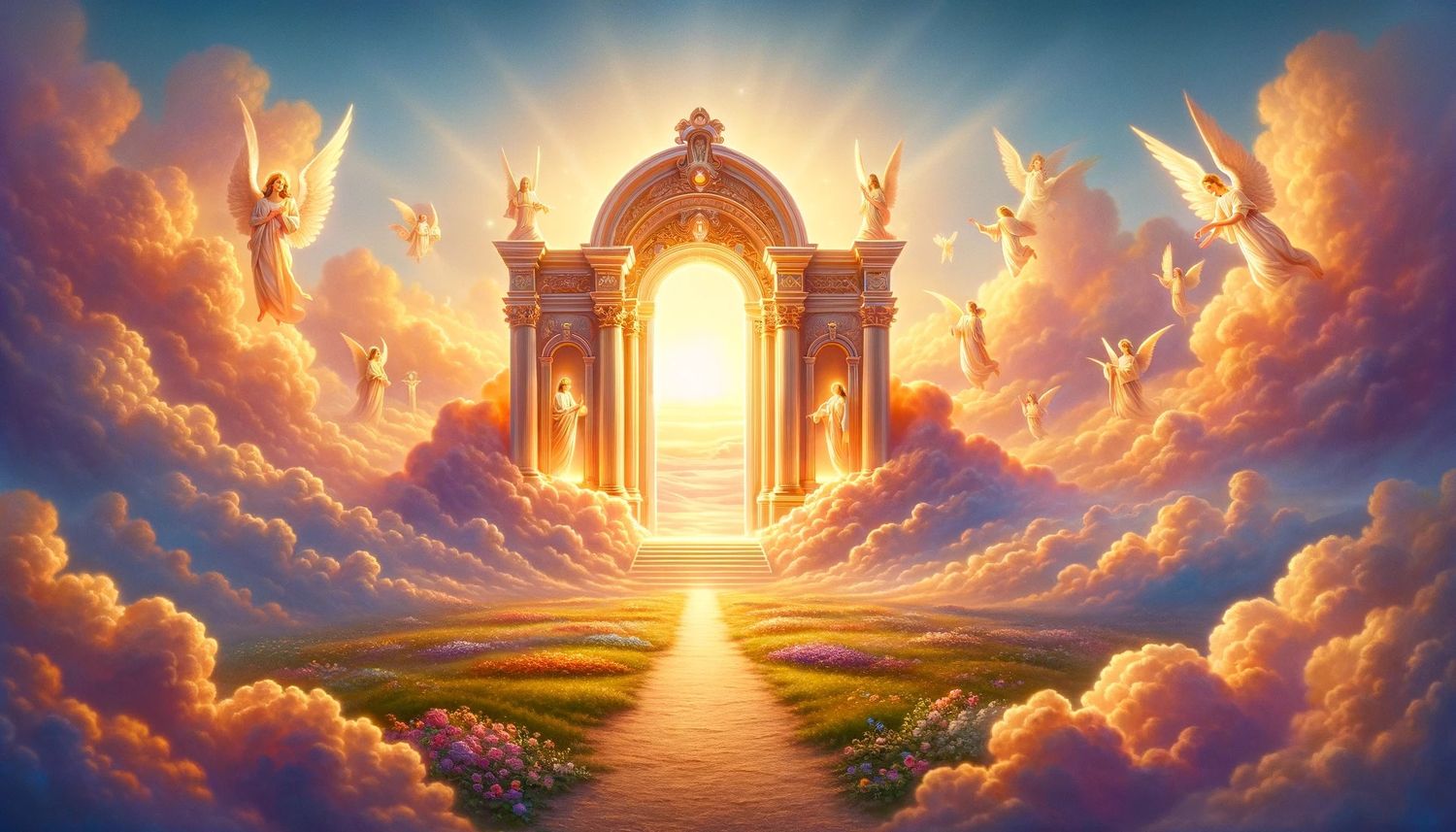

Theology and Spirituality
What Happens After Death In Catholicism
Published: February 18, 2024
Jason DeRose, Managing Editor at Christian.net, uses his expertise in religion and journalism to deepen understanding of faith's societal impacts. His editorial leadership, coupled with a strong academic background, enriches the platform’s diverse content, earning him recognition in both journalism and religious circles.
Discover the Catholic perspective on life after death and the theological beliefs surrounding the journey of the soul. Explore the teachings and traditions of Catholicism on theology and spirituality.
(Many of the links in this article redirect to a specific reviewed product. Your purchase of these products through affiliate links helps to generate commission for Christian.net, at no extra cost. Learn more)
Table of Contents
Introduction
The concept of what happens after death has been a subject of profound curiosity and contemplation for humanity throughout history. In Catholicism, the afterlife holds significant theological and spiritual importance, shaping the beliefs and practices of millions of adherents worldwide. The Catholic perspective on the afterlife is deeply rooted in the teachings of the Church, drawing from sacred scriptures, tradition, and the writings of theologians and saints.
Understanding the Catholic perspective on the afterlife provides insight into the beliefs and practices that guide the faithful in their journey of faith and spiritual growth. It offers a glimpse into the profound hope and assurance that the Catholic faith imparts regarding the ultimate destiny of the human soul beyond earthly life.
In the following sections, we will delve into the rich tapestry of Catholic beliefs concerning the afterlife, exploring the concepts of heaven, hell, purgatory, and the final judgment. We will also examine the significance of prayers for the dead and the communion of saints in the Catholic tradition. Through this exploration, we aim to gain a deeper understanding of the profound mysteries that await the faithful beyond the threshold of mortal existence.
Read more: What Happens After Confession
The Catholic Belief in the Afterlife
The Catholic Church holds a profound and intricate belief in the afterlife, rooted in the teachings of Jesus Christ and elucidated through centuries of theological reflection. Central to this belief is the understanding that human life extends beyond the temporal realm, and that the choices made in this life have eternal implications. According to Catholic doctrine, the soul is immortal, and its journey continues beyond physical death.
At the core of Catholic belief in the afterlife is the affirmation of the resurrection of the dead. This belief, articulated in the Apostles' Creed, professes the resurrection of the body and the life everlasting. It underscores the conviction that just as Christ rose from the dead, so too will all humanity experience a resurrection, leading to a union of the soul and the glorified body in the final state of existence.
The Catholic faith emphasizes the significance of the particular judgment, which occurs at the moment of an individual's death. This judgment entails a personal review of one's life and actions, leading to the soul's immediate entry into either heaven, hell, or purgatory. This understanding underscores the accountability and moral responsibility that characterize the Catholic understanding of the afterlife.
Furthermore, the Catholic belief in the afterlife is intricately linked to the concepts of divine mercy and justice. It acknowledges the reality of sin and its consequences, while also proclaiming the boundless mercy of God, who desires the salvation of all. This tension between justice and mercy underscores the complexity of the Catholic understanding of the afterlife, as it navigates the profound mysteries of human existence and the divine plan for redemption.
In essence, the Catholic belief in the afterlife encompasses a rich tapestry of theological truths, spiritual insights, and moral imperatives. It offers a vision of hope, redemption, and the ultimate fulfillment of the human person in communion with God. This belief shapes the lived experience of Catholic faithful, inspiring them to lead lives of virtue, compassion, and faithfulness in anticipation of the eternal realities that await beyond the threshold of earthly life.
The Concept of Heaven
Heaven, in the Catholic tradition, represents the ultimate and eternal dwelling place of the righteous and the redeemed. It is a state of supreme and unending bliss, where the souls of the departed experience the fullness of God's presence and the perfection of divine love. The concept of heaven holds a central place in Catholic eschatology, offering a vision of hope and fulfillment that transcends the limitations of earthly existence.
According to Catholic teaching, heaven is not merely a symbolic or allegorical realm, but a tangible and transcendent reality. It is the culmination of God's salvific plan, where the faithful are united with the Holy Trinity in a state of beatific vision. This beatific vision, often described as the direct, intuitive knowledge of God, brings about a profound and unending joy that surpasses all earthly understanding.
The Catholic understanding of heaven is deeply rooted in the teachings of Jesus Christ, who spoke of the kingdom of heaven in parables and discourses. Christ's promise of eternal life and his proclamation of the Father's house with many dwelling places (John 14:2) form the foundation of the Christian hope for heavenly glory. The resurrection of Christ, as the first fruits of the dead, serves as a foretaste and assurance of the heavenly destiny that awaits all who believe in him.
Heaven is depicted in Catholic theology as a state of perfect communion, where the redeemed are united not only with God but also with the communion of saints – the assembly of all the faithful, living and departed. This communion reflects the profound interconnectedness of the mystical body of Christ, where the joys and blessings of each member contribute to the collective harmony and felicity of the heavenly realm.
Furthermore, the Catholic concept of heaven emphasizes the renewal and transfiguration of creation, envisioning a new heaven and a new earth where righteousness dwells (2 Peter 3:13). This eschatological vision underscores the cosmic scope of redemption, portraying heaven not as an otherworldly escape but as the fulfillment of God's plan to reconcile and renew all things in Christ.
In the Catholic imagination, heaven is portrayed through rich and diverse imagery, evoking the splendor of celestial courts, the radiance of angelic hosts, and the resplendence of the heavenly Jerusalem. These depictions, while symbolic, point to the ineffable beauty and majesty of the heavenly reality, inviting the faithful to contemplate the eternal joys that await those who persevere in faith and love.
Ultimately, the concept of heaven in Catholicism serves as a source of profound hope, inspiring believers to orient their lives toward the pursuit of holiness and the enduring treasures of the kingdom. It beckons the faithful to embrace the transformative power of God's grace, knowing that the trials and tribulations of this present age are but a prelude to the unending glory that awaits in the heavenly abode.
The Concept of Hell
In Catholic theology, the concept of hell represents a sobering and profound dimension of eschatological reality. It is depicted as a state of definitive self-exclusion from communion with God, resulting from the individual's deliberate choice to reject divine love and persist in grave sin. The Catholic understanding of hell is rooted in the teachings of Jesus Christ, who spoke unequivocally about the reality of eternal punishment for those who reject the path of righteousness.
Hell is portrayed as a state of eternal separation from God, characterized by the absence of divine grace and the deprivation of the soul's ultimate fulfillment. It is described in vivid and somber imagery, symbolizing the anguish and despair that accompany the rejection of God's mercy and the embrace of spiritual darkness. The Catechism of the Catholic Church emphasizes that hell is not so much a punishment imposed by God as it is the ultimate consequence of the individual's rejection of God's love.
The Catholic concept of hell underscores the reality of human freedom and moral responsibility. It acknowledges that individuals possess the capacity to choose their ultimate destiny, either in communion with God or in self-imposed isolation from divine love. This understanding reflects the profound respect for human autonomy within the Catholic theological framework, recognizing that the choices made in this life have eternal ramifications.
Furthermore, the Catholic tradition presents hell as a state of definitive and irrevocable self-exclusion, rather than a realm of divine retribution. This nuanced understanding invites contemplation on the nature of sin, the reality of evil, and the enduring consequences of moral choices. It serves as a poignant reminder of the gravity of human freedom and the imperative of seeking reconciliation with God through repentance and conversion.
While the concept of hell evokes solemn reflection on the consequences of sin and the reality of divine justice, it is inseparable from the broader narrative of God's redemptive plan. The Catholic faith affirms the universal salvific will of God, who desires the salvation of all and offers boundless mercy to those who turn to Him in contrition. This tension between the reality of hell and the hope of divine mercy underscores the complexity of Catholic eschatology, calling believers to embrace the transformative power of God's grace while acknowledging the reality of sin and its consequences.
In essence, the Catholic concept of hell serves as a sobering yet integral aspect of the Church's eschatological teaching. It prompts believers to confront the profound realities of human freedom, moral choice, and the ultimate destiny of the soul, while also pointing to the unfathomable depths of God's mercy and the call to conversion. It stands as a testament to the profound implications of the human journey toward the divine, inviting contemplation on the eternal significance of one's choices and the enduring hope of reconciliation with God.
Purgatory and the Final Judgment
Purgatory, a concept unique to Catholic theology, represents a state of purification and preparation for the souls destined for the fullness of heavenly glory. It is not a place of eternal punishment like hell, but rather a transitional state where the souls of the faithful undergo purification to attain the holiness necessary to enter into the presence of God. The belief in purgatory underscores the Catholic understanding of God's justice and mercy, as well as the enduring bond between the living and the deceased within the communion of saints.
The Catholic doctrine of purgatory is rooted in the understanding that while God's mercy offers forgiveness of sins, the consequences of those sins and the lingering effects of imperfection remain. Purgatory is seen as a merciful provision where the souls of the departed undergo a process of purification, cleansing them of any remaining attachment to sin and enabling them to be fully united with God in heaven. This purification is often likened to the refining of precious metals, where the impurities are removed to reveal the intrinsic beauty and purity within.
The concept of purgatory finds biblical support in passages such as 2 Maccabees 12:46, which speaks of making atonement for the dead, and 1 Corinthians 3:15, which describes a purifying fire that tests the quality of each person's work. These passages, along with the consistent teaching of the Church Fathers and the liturgical tradition of praying for the dead, form the basis for the development of the doctrine of purgatory in Catholic theology.
Moreover, the Catholic understanding of the final judgment encompasses the belief that all individuals will be held accountable for their actions and their response to God's grace. The final judgment, often referred to as the Last Judgment, is depicted as the definitive moment when the entire human race will stand before the throne of God to receive a just and merciful judgment. This judgment entails the revelation of the hidden motives of hearts and the ultimate disclosure of the moral quality of each person's life.
The Catholic faith teaches that the final judgment will culminate in the separation of the righteous from the wicked, with the righteous being welcomed into the fullness of God's kingdom and the wicked facing the consequences of their rejection of divine love. This eschatological reality underscores the profound significance of human choices and the enduring consequences of one's actions, while also affirming the hope of God's redemptive justice and the promise of eternal life for those who have embraced the Gospel.
In summary, the Catholic beliefs regarding purgatory and the final judgment offer a comprehensive framework for understanding the destiny of the human soul beyond earthly life. These doctrines emphasize the transformative power of God's grace, the enduring call to holiness, and the hope of ultimate reconciliation with God. They invite believers to contemplate the profound mysteries of divine mercy and justice, while inspiring them to live lives of faith, repentance, and charity in anticipation of the eternal realities that await in the presence of the Almighty.
Read more: What Happens If You Sin After Baptism
Prayers for the Dead and the Communion of Saints
In Catholic tradition, prayers for the dead and the communion of saints occupy a central and profound significance, reflecting the interconnectedness between the living and the deceased within the mystical body of Christ. The practice of praying for the souls of the departed is rooted in the belief in the enduring bond of love that transcends the barrier between earthly life and the afterlife. It embodies the conviction that the communion of saints, comprising the faithful on earth, the souls undergoing purification in purgatory, and the saints in heavenly glory, forms a spiritual solidarity that transcends temporal and spatial limitations.
Prayers for the dead, often offered through the Holy Sacrifice of the Mass, the Rosary, and other devotional prayers, express the Church's enduring love and concern for those who have passed from this life. These prayers are grounded in the belief that the faithful departed, while unable to merit further graces for themselves, can benefit from the prayers and intercessions of the living. The Catholic faith affirms that such prayers can alleviate the sufferings of the souls in purgatory and assist them in their journey toward the fullness of heavenly joy. This practice underscores the profound hope and trust in God's mercy, as well as the recognition of the enduring bond that unites the entire body of Christ.
Moreover, the communion of saints, a fundamental doctrine in Catholic theology, emphasizes the spiritual unity and interconnectedness of all believers, living and deceased. It affirms that the saints in heaven, through their intercessory prayers, offer spiritual support and assistance to the faithful on earth. This communion transcends the boundaries of time and space, affirming the enduring reality of the mystical body of Christ, where the prayers and merits of the saints contribute to the spiritual well-being of the entire Church.
The Catholic tradition also venerates the saints as exemplars of holiness and models of Christian discipleship. Their lives of faith, virtue, and heroic love serve as sources of inspiration and encouragement for the faithful, inviting them to emulate the saints' devotion to God and their selfless love for others. The veneration of the saints underscores the belief in their continued presence and active participation in the life of the Church, offering guidance, intercession, and spiritual companionship to those who seek their aid.
In essence, prayers for the dead and the communion of saints embody the profound interconnectedness and solidarity that characterize the Catholic understanding of the mystical body of Christ. They reflect the enduring hope in God's mercy, the recognition of the transformative power of prayer, and the affirmation of the spiritual unity that transcends the boundaries of earthly life. This rich tapestry of belief and practice inspires the faithful to embrace the communion of saints as a source of spiritual strength and to offer prayers for the departed as an expression of love and solidarity that transcends the threshold of mortality.
Conclusion
The Catholic perspective on the afterlife encompasses a rich tapestry of theological truths, spiritual insights, and moral imperatives. It offers a vision of hope, redemption, and the ultimate fulfillment of the human person in communion with God. The beliefs in heaven, hell, purgatory, and the final judgment, along with the practices of prayers for the dead and the communion of saints, form a comprehensive framework that shapes the lived experience of Catholic faithful.
The concept of heaven in Catholicism serves as a source of profound hope, inspiring believers to orient their lives toward the pursuit of holiness and the enduring treasures of the kingdom. It beckons the faithful to embrace the transformative power of God's grace, knowing that the trials and tribulations of this present age are but a prelude to the unending glory that awaits in the heavenly abode.
Conversely, the concept of hell serves as a sobering yet integral aspect of the Church's eschatological teaching. It prompts believers to confront the profound realities of human freedom, moral choice, and the ultimate destiny of the soul, while also pointing to the unfathomable depths of God's mercy and the call to conversion.
The doctrines of purgatory and the final judgment offer a comprehensive framework for understanding the destiny of the human soul beyond earthly life. These doctrines emphasize the transformative power of God's grace, the enduring call to holiness, and the hope of ultimate reconciliation with God. They invite believers to contemplate the profound mysteries of divine mercy and justice, while inspiring them to live lives of faith, repentance, and charity in anticipation of the eternal realities that await in the presence of the Almighty.
Furthermore, prayers for the dead and the communion of saints embody the profound interconnectedness and solidarity that characterize the Catholic understanding of the mystical body of Christ. They reflect the enduring hope in God's mercy, the recognition of the transformative power of prayer, and the affirmation of the spiritual unity that transcends the boundaries of earthly life.
In conclusion, the Catholic belief in the afterlife offers a profound vision of the human journey toward the divine, encompassing the complexities of human freedom, the realities of sin and redemption, and the enduring hope of eternal communion with God. It shapes the moral and spiritual consciousness of the faithful, inspiring them to live lives of virtue, compassion, and faithfulness as they anticipate the fulfillment of the ultimate destiny that awaits beyond the threshold of mortal existence.
